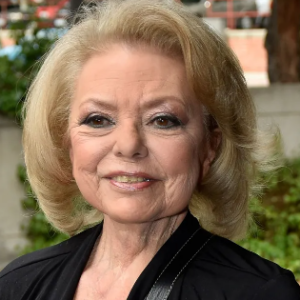In a seismic move reverberating through the entertainment realm, Warner Bros. has reportedly terminated its $50 million production deal with esteemed director Rob Reiner. Allegedly, the reason behind this sudden break stems from concerns over an excessive infusion of “wokeness” in Reiner’s filmmaking approach. This development marks a pivotal moment in the ongoing discourse regarding the incorporation of social and political themes into Hollywood productions.
Rob Reiner, a cinematic luminary with a repertoire including classics like “When Harry Met Sally” and “A Few Good Men,” has been synonymous with embedding social commentary into his creations. Meanwhile, Warner Bros., a cinematic powerhouse, has backed numerous triumphs in the film industry. The collaboration between these giants was anticipated to harmonize commercial success with meaningful storytelling.
However, the termination of the deal over worries of “too much wokeness” underscores a mounting tension within Hollywood. The term, initially coined to signify awareness of social injustices, has evolved into a lightning rod in cultural and political dialogues, extending into the realm of filmmaking.
The term “wokeness” has triggered both acclaim and critique in diverse circles. Advocates hail it as an essential storytelling evolution, reflecting a more inclusive and socially conscious world. Critics argue that it can lead to didactic narratives prioritizing messaging over storytelling.
In the case of Reiner and Warner Bros., this ideological clash seems to have reached a breaking point. Reports indicate that Warner Bros. executives perceived Reiner’s recent projects as overly fixated on social and political themes, potentially estranging a segment of their audience.
The termination news has ignited a fervent debate in Hollywood. Some insiders support Warner Bros.’ decision, contending that entertainment should offer an escape from, rather than a reflection of, societal debates. Others rally behind Reiner, applauding his courage in addressing complex issues through his art.
This division mirrors a broader cultural shift, where entertainment and politics intertwine. The question of how much “wokeness” is too much has become a contentious topic among filmmakers, studio executives, and audiences.
From a business perspective, the dissolution of this deal raises questions about the financial viability of socially conscious filmmaking. Warner Bros.’ decision suggests a concern that films rich in social commentary might not yield desired financial returns, potentially reshaping how studios greenlight projects.
Rob Reiner responded with a reaffirmation of his commitment to crafting films reflecting his values. His outspoken stance aligns with a faction of filmmakers who believe that art should confront difficult conversations, using cinema as a platform to discuss and challenge societal issues.
The audience’s role in this saga is pivotal. Viewer preferences shape the content produced by Hollywood, with increasing polarization evident in reactions to films perceived as either endorsing or rejecting “wokeness.”
This divide prompts the question: Can Hollywood strike a balance satisfying a broad spectrum of viewers, or is the industry destined to cater to increasingly segmented audiences?
Warner Bros.’ termination of the deal with Reiner might herald impending changes in Hollywood. As studios navigate cultural and political sensitivities, the types of stories told and how they are told may undergo significant shifts.
For filmmakers like Reiner, this situation poses both a challenge and an opportunity. The challenge lies in staying true to their vision in an industry growing cautious about social and political messaging. The opportunity is to lead the way in demonstrating that films can be both commercially successful and socially relevant.
The end of the Warner Bros. and Rob Reiner collaboration over concerns of “wokeness” transcends a mere contractual dispute; it mirrors the broader cultural and ideological shifts in society and, by extension, in Hollywood. As the industry grapples with these changes, the decisions made by studios and filmmakers will shape not only the future of cinema but also its role in reflecting and influencing societal norms and values.






